Ancient Roman doctor made mysterious trek to Hungary. Photos show his rare grave
An ancient Roman physician was found buried with his medical equipment in Hungary, prompting archaeologists to question what urgent matter might have brought him to the far-flung region.
The tomb, which had been untouched for about 2,000 years, was discovered near Jászberény, about 50 miles from Budapest, according to an April 25 news release from Eötvös Loránd University.
The skeletal remains of the doctor, which include an intact skull and leg bones, were found alongside wooden chests containing a complete set of medical tools, researchers said.
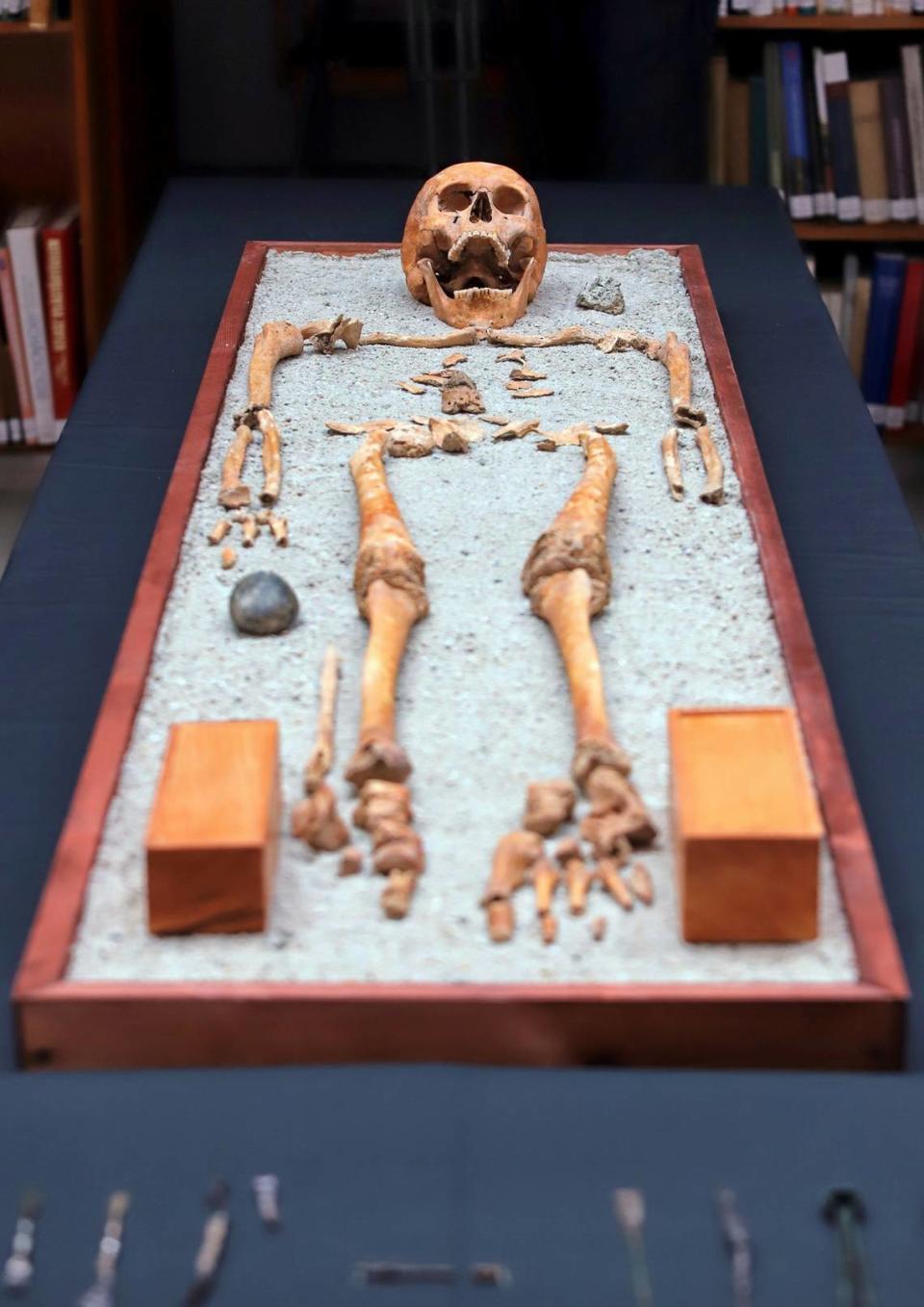
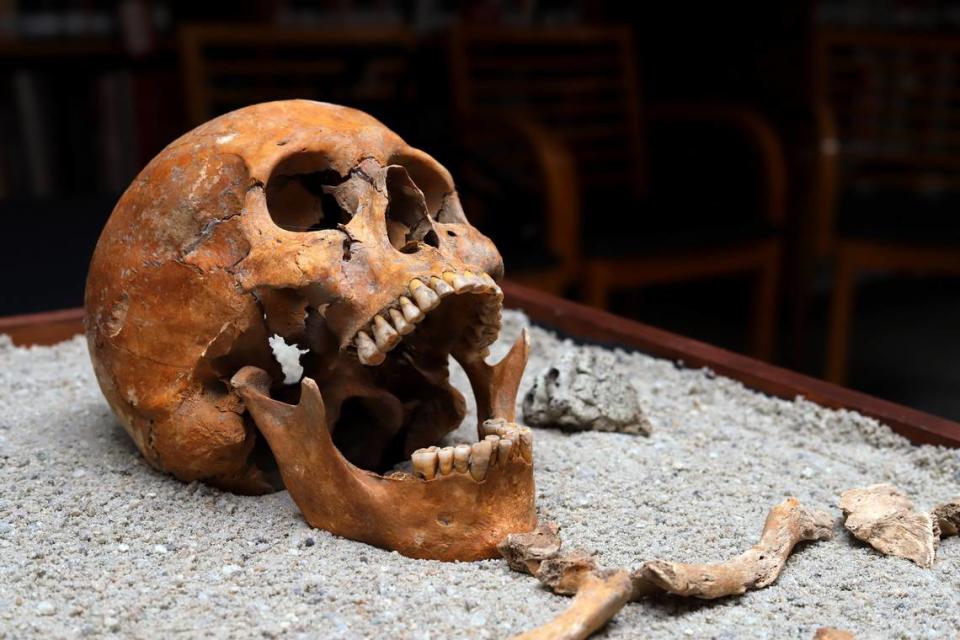
The equipment was of extremely high quality and included pliers, needles and scalpels outfitted with replaceable blades, researchers said.
A grinding stone, which could have been used to mix medicines, was also uncovered.
Only one other comprehensive collection of similar ancient Roman medical equipment has ever been found (in Pompeii), making the discovery extremely rare, researchers said.
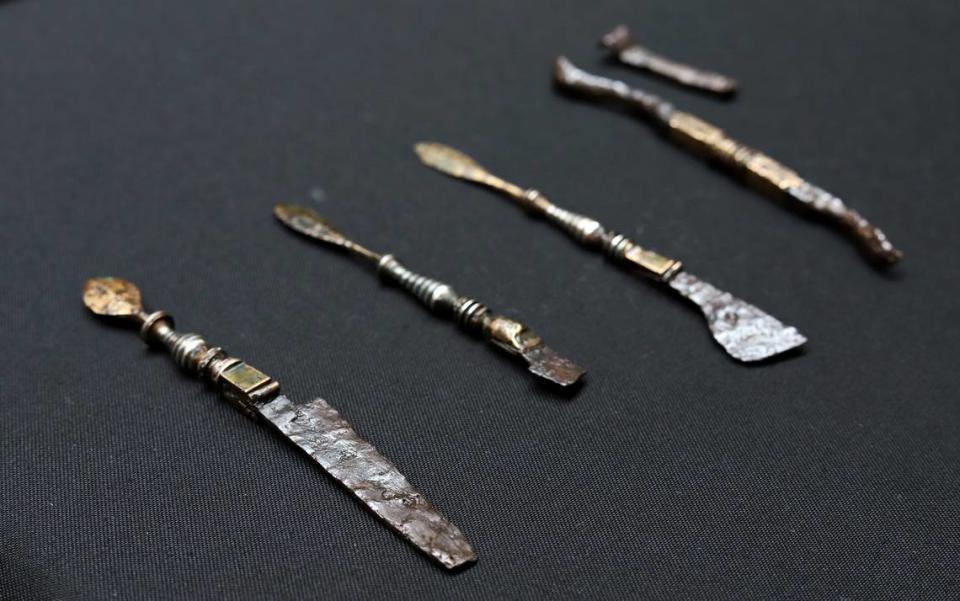
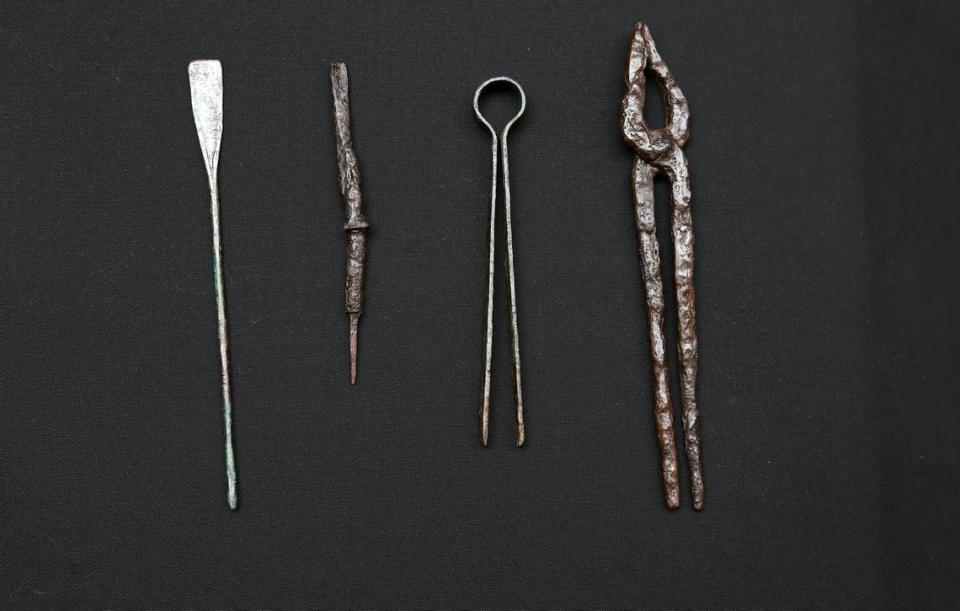
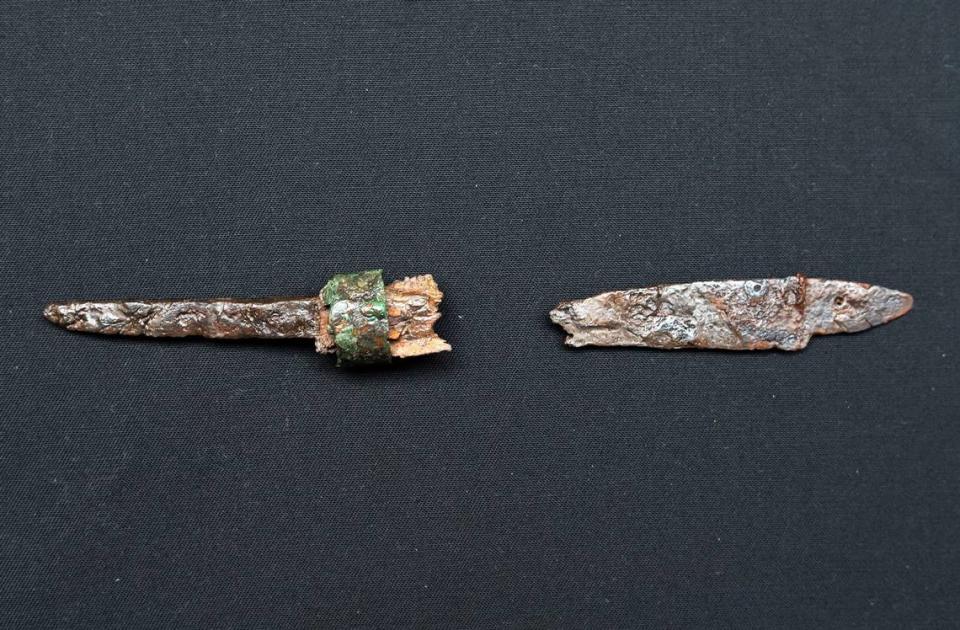
What exactly brought the well-equipped physician to Hungary, which was incorporated into the Roman Empire around the time of his travels, is unclear.
The prevailing narrative is that he likely received his training at an imperial center and made the trek to Hungary to provide medical care for someone.
Whatever brought him to the region must have been an extraordinary event, researchers said.
Physicians in Rome formed guilds and were composed of slaves and freedmen, according to a study published in the Dutch journal Dan Medicinhist Arbog. The education of individual physicians differed remarkably, and Romans were generally wary of them.
Google Translate was used to translate a press release from Eötvös Loránd University.
Someone buried treasure 2,000 years ago and never returned. A hiker just found it
Prehistoric predator’s last meal reveals an undiscovered ancient species, study says
Watch as ‘super rare’ sea creature gives diver the ‘shock of a lifetime’ in Malaysia

